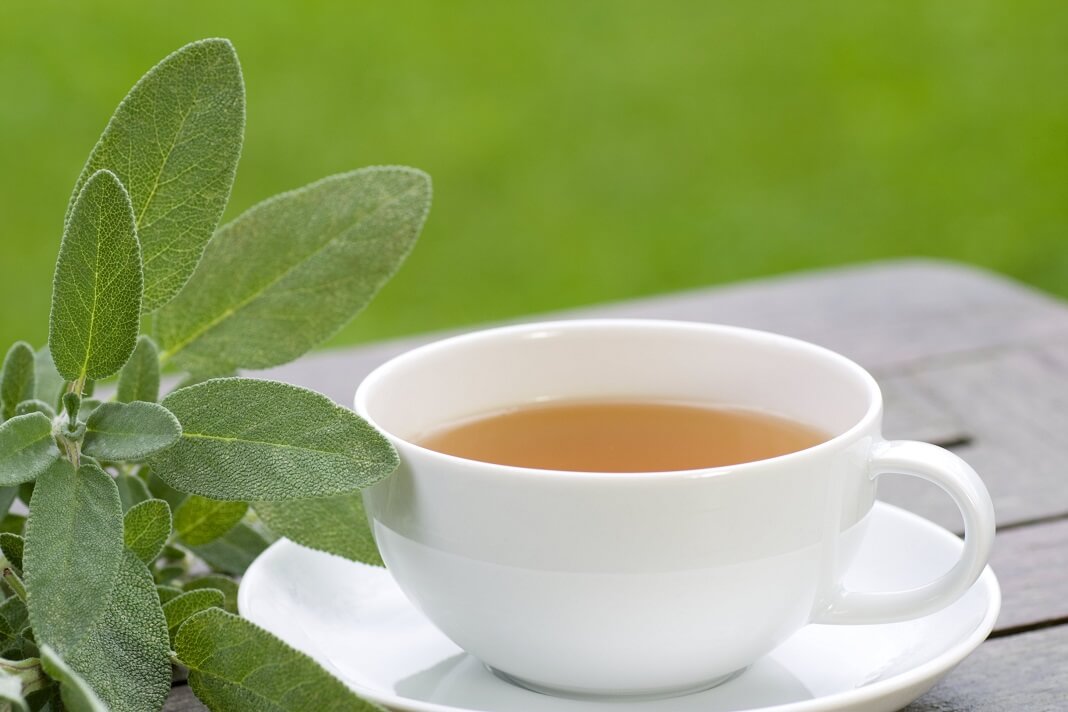Introduction:
Sage tea is a popular herbal infusion made from the leaves of the sage plant (Salvia officinalis). This aromatic beverage has been enjoyed for centuries due to its distinct flavor and potential health benefits. Beyond its culinary uses, sage tea has also gained recognition for its various medicinal properties. In this comprehensive guide, we will explore nine emerging benefits and uses of sage tea, backed by scientific research and traditional wisdom.
Enhances Cognitive Function:
Sage tea contains compounds that may support brain health and enhance cognitive function. Studies suggest that it may improve memory, attention, and overall cognitive performance. The active compounds in sage tea, such as rosmarinic acid and luteolin, have demonstrated neuroprotective effects and the potential to inhibit the progression of neurodegenerative disorders.
Relieves Digestive Issues:
Drinking sage tea can provide relief from various digestive problems. It acts as a carminative, helping to alleviate bloating, gas, and indigestion. Sage tea also possesses antimicrobial properties that may combat harmful bacteria in the gut, promoting a healthy digestive system.
Supports Oral Health:
Sage tea has been traditionally used to promote oral health due to its antibacterial and anti-inflammatory properties. It may help combat gum inflammation, reduce plaque formation, and prevent cavities. Gargling with sage tea can soothe sore throat and mouth ulcers as well.
Provides Antioxidant Protection:
Antioxidants are essential for neutralizing harmful free radicals in the body. Sage tea is a rich source of antioxidants, including rosmarinic acid, flavonoids, and phenolic compounds. Regular consumption of sage tea may help reduce oxidative stress, prevent cellular damage, and lower the risk of chronic diseases, such as heart disease and certain cancers.
Eases Menopausal Symptoms:
Sage tea has gained popularity as a natural remedy for menopausal symptoms, such as hot flashes, night sweats, and mood swings. Some studies suggest that sage tea may help regulate hormone levels and alleviate menopausal discomfort. However, further research is needed to fully understand its mechanisms of action.
Supports Respiratory Health:
The anti-inflammatory and antimicrobial properties of sage tea make it beneficial for respiratory health. Drinking sage tea can help soothe sore throats, reduce coughing, and relieve congestion. It may also inhibit the growth of bacteria and viruses responsible for respiratory infections.
Promotes Healthy Skin:
Sage tea possesses astringent and antibacterial properties, which can benefit the skin. It may help regulate sebum production, reducing oily skin and acne breakouts. Additionally, sage tea’s antioxidant content can protect the skin against free radical damage and premature aging, promoting a healthier complexion.
Aids in Weight Management:
Including sage tea in a balanced diet and exercise regimen may aid in weight management. Sage tea has been found to have anti-obesity effects by regulating lipid metabolism and reducing fat absorption. It can also act as a natural appetite suppressant, helping control cravings and promote satiety.
Alleviates Anxiety and Stress:
Sage tea has a long history of use in traditional medicine for its calming properties. It may help reduce anxiety, stress, and promote relaxation. The compounds in sage tea, such as rosmarinic acid and luteolin, have been associated with mood-enhancing effects and the regulation of stress hormones.
Conclusion:
Sage tea offers numerous emerging benefits and uses, making it a valuable addition to your wellness routine. From cognitive support and digestive relief to oral health promotion and weight management, the consumption of sage tea has been linked to various positive effects on the body and mind. However, it’s important to note that sage tea may interact with certain medications, and excessive consumption should be avoided during pregnancy and breastfeeding. As with any herbal remedy, it’s advisable to consult with a healthcare professional before incorporating sage tea into your daily regimen. Enjoy the aromatic flavors and potential health benefits of sage tea, while reaping the rewards of this versatile herbal infusion.
- Gear Up for Adventure: My Fun Review of Vessel’s Expedition Series! - August 17, 2024
- 9 Emerging Benefits and Uses of Sage Tea - July 20, 2023

